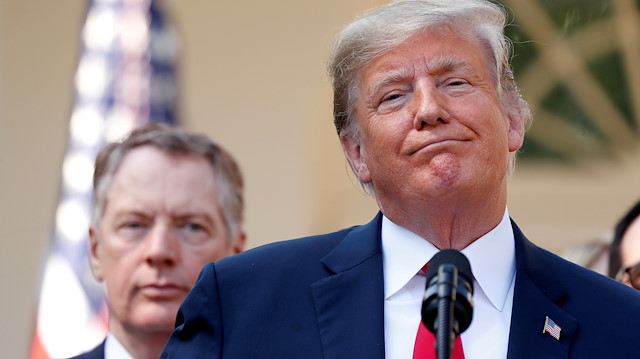
Washington’s stubborn support for Saudi Arabia increasingly indefensible, says Eurasia Group Foundation
The U.S. has continuously supported Saudi Arabia because of oil, Iran and terrorism, however, these reasons are becoming increasingly indefensible, according to a foreign policy expert.
The Eurasia Group Foundation (EGF)'s Mark Hannah responded to U.S. President Donald Trump's support for Saudi Arabia, despite reports the CIA concluded with high confidence that Saudi Crown Prince Mohammed bin Salman ordered the killing of journalist Jamal Khashoggi.
Khashoggi, a Saudi journalist and columnist for The Washington Post, went missing after entering the Saudi Consulate in Istanbul on Oct. 2.
After initially saying he had left the consulate alive, weeks later the Saudi administration admitted he was killed there.
Trump maintained in a statement the U.S. needs Saudi Arabia because of its oil, its willingness to counter Iran and its ability to counter terrorism in the region.
However, Hannah wrote that "none of these holds water."
According to Hannah, the U.S. support for Saudi Arabia has led to a war in Yemen that is "one of the worst humanitarian crises in our lifetime," he wrote in the opinion piece for NBC News.
As the conflict enters its fourth year, around 14 million people in Yemen, or half the total population, are at risk of famine, according to the U.N.
"Saudi Arabia, long a problematic U.S. partner, has gone rogue, and Washington’s stubborn support for it is increasingly indefensible," Hannah wrote Tuesday.
Hannah, a research fellow at EGF, said the U.S. has surpassed Saudi Arabia and Russia as the world's leading producer of petroleum, and that the Saudis need to export their oil more than the U.S. needs to import from them.
He argued the notion that Iran is poised to dominate the Middle East and that the Saudis are a bulwark against terrorism are false.
In fact, Hannah said the idea that the Saudis can help in the fight against terrorism "seems downright foolish," noting that 15 of the 19 hijackers involved in the Sept. 11, 2001, attacks were from Saudi Arabia.
There is also a “longstanding and close relationships between al Qaeda and the religious components of the Saudi government,” according to the lead attorney in the case of the attacks, he said.
It is up to Congress to end U.S. military support for Saudi Arabia, and then ask questions of Washington’s approach to the Middle East, according to Hannah.
"It is long past time to start rethinking our foreign policy in the Middle East, which is centered around unnecessary and untenable support for one of the world’s most repressive autocracies," he wrote.


